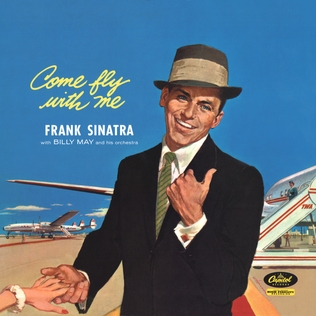Mandalay is the second largest city in Myanmar (Burma).
Contents
Mandalay may also refer to:
Mandalay is the second largest city in Myanmar (Burma).
Mandalay may also refer to:
Cell most often refers to:
"Gunga Din" is an 1890 poem by Rudyard Kipling set in British India. The poem was published alongside "Mandalay" and "Danny Deever" in the collection "Barrack-Room Ballads".
Saya may refer to:

Mandalay is the second-largest city in Myanmar, after Yangon. Located on the east bank of the Irrawaddy River, 631 km north of Yangon, the city has a population of 1,225,553.

The Irrawaddy River is the largest river in Myanmar. Originating from the confluence of the N'mai and Mali rivers, it flows from north to south before emptying through the Irrawaddy Delta in the Ayeyarwady Region into the Andaman Sea. Its drainage basin of about 404,000 square kilometres (156,000 sq mi) covers 61% of the land area of Burma, and contains five of its largest cities.

The Barrack-Room Ballads are a series of songs and poems by Rudyard Kipling, dealing with the late-Victorian British Army and mostly written in a vernacular dialect. The series contains some of Kipling's best-known works, including the poems "Gunga Din", "Tommy", "Mandalay", and "Danny Deever", helping consolidate his early fame as a poet.

Come Fly with Me is the fourteenth studio album by American singer Frank Sinatra, released in 1958.

"Danny Deever" is an 1890 poem by Rudyard Kipling, one of the first of the Barrack-Room Ballads. It received wide critical and popular acclaim, and is often regarded as one of the most significant pieces of Kipling's early verse. The poem, a ballad, describes the execution of a British soldier in India for murder. His execution is viewed by his regiment, paraded to watch it, and the poem is composed of the comments they exchange as they see him hanged.
Tommy may refer to:
The Road to Mandalay can refer to:

"Mandalay" is a poem by Rudyard Kipling, written and published in 1890, and first collected in Barrack-Room Ballads, and Other Verses in 1892. The poem is set in colonial Burma, then part of British India. The protagonist is a Cockney working-class soldier, back in grey, restrictive London, recalling the time he felt free and had a Burmese girlfriend, now unattainably far away.
"Colonel Hathi's March " is a song in the 1967 Walt Disney film, The Jungle Book. The song was sung by J. Pat O'Malley, playing the part of "Colonel Hathi". The song was also sung by Thurl Ravenscroft and The Mellomen, originally Terry-Thomas and Disney Chorus. The song was written by Disney staff songwriters, Robert and Richard Sherman. It is written in the spirit of a light commentary on the pointlessness of constant military drilling. A reprise version has the first appearance of Shere Khan.
Oley Speaks was an American composer and songwriter. His compositions include many religious songs, as well as his best-known success, "On the Road to Mandalay", which takes its lyrics from the poem "Mandalay" by Rudyard Kipling. The Canal Winchester Area Historical Society Museum has exhibits about the life of Oley Speaks, including original sheet music written by him.

Meeshay is a Burmese cuisine dish of rice noodles with a meat sauce. The dish originated from the Chinese mixian and became a specialty of the Shan people of Eastern Myanmar. Regional variants exist, but the two main types are the normal Mogok meeshay and the Mandalay version. Myay-oh meeshay is a Yunnanese version in which the rice noodles are cooked in a clay pot and the dish is served with a large quantity of soup and fresh vegetables.
Quartered Safe Out Here: A Recollection of the War in Burma is a military memoir of World War II by George MacDonald Fraser, the author of The Flashman Papers series of novels. Quartered Safe Out Here was first published in 1993.

"On the Road to Mandalay" is a song by Oley Speaks (1874–1948) with text by Rudyard Kipling (1865–1936).

Elsie Bambridge was the second daughter of British writer Rudyard Kipling. She was the only one of the Kiplings' three children to survive beyond early adulthood.
A Choice of Kipling's Verse, made by T. S. Eliot, with an essay on Rudyard Kipling is a book first published in December 1941. It is in two parts. The first part is an essay by American-born British poet T. S. Eliot (1888–1965), in which he discusses the nature and stature of British poet Rudyard Kipling (1865–1936). The second part consists of Eliot's selection from Kipling's poems.
Gerard Francis Cobb was Junior Bursar of Trinity College, Cambridge. He was active as an Anglican layman, organist and amateur composer.

The Kyaikthanlan Pagoda(Mon: ကျာ်သြင်လာန်) is the tallest Buddhist pagoda in Mawlamyine, Mon State, Myanmar, standing at a height of 150 feet.